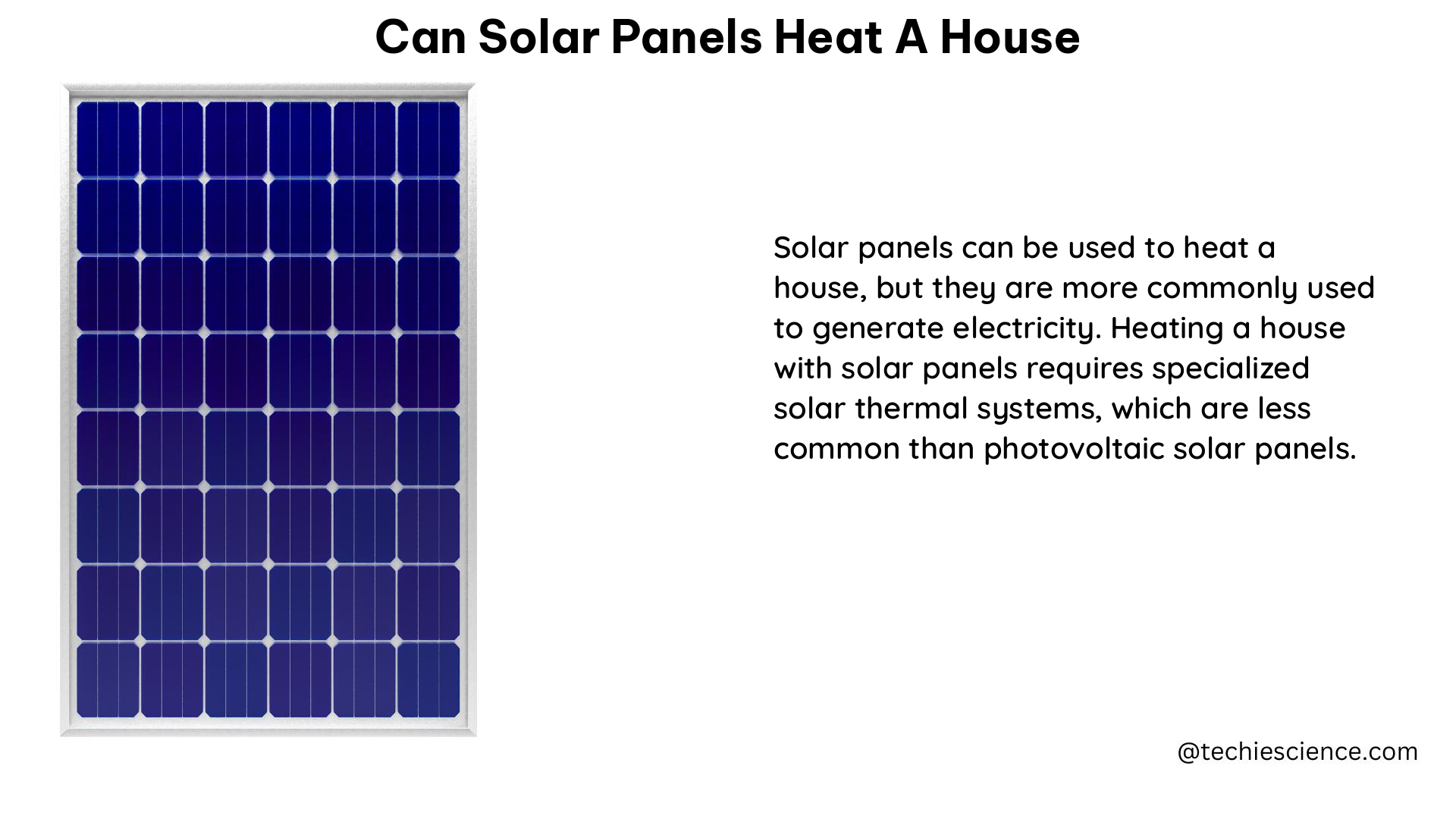Solar panels can contribute to heating a house, but the extent to which they can replace traditional heating systems depends on various factors. This comprehensive guide delves into the technical details and calculations to understand the role of solar panels in home heating.
Indirect Heating Contribution of Solar Panels
-
Powering Heating Systems: Solar panels can reduce the amount of energy needed for heating by providing electricity to power heating systems, such as heat pumps, electric furnaces, or baseboard heaters. However, they do not directly heat the house like a traditional furnace or boiler.
-
Attic Temperature Regulation: Solar panels can affect attic temperatures by reducing heat transfer from the roof. For instance, a 30-panel solar system can reduce heat transfer by up to 66 W/sq meter, which is equivalent to having two space heaters running in the attic. While this does not directly heat the house, it can potentially reduce the load on heating systems by maintaining a more consistent temperature in the attic.
| Solar Panel System Size | Heat Transfer Reduction |
|---|---|
| 30-panel system | Up to 66 W/sq meter |
- Efficiency Considerations: The efficiency of solar panels decreases as they get hotter. Solar panels are typically tested at 25°C (77°F), and their efficiency decreases as the temperature rises. At 65°C (149°F), solar cell efficiency is hindered, which means that hotter panels will produce less electricity. Therefore, managing solar panel temperatures is crucial for maximizing their energy output.
| Solar Panel Temperature | Efficiency Impact |
|---|---|
| 25°C (77°F) | Optimal efficiency |
| 65°C (149°F) | Efficiency hindered |
Calculating Heat Flow with Solar Panels

Thermal conductivity, thickness of the roof deck, area, and temperature difference are essential factors in calculating heat flow. For example, a 1 m² area with a 0.019 m thick roof deck and a thermal conductivity of 0.15 W/m·K would have the following heat flow calculations:
- Without Solar Panels:
- Heat flow = (Temperature difference) / (Thermal resistance)
- Heat flow = (65°C – 20°C) / (0.019 m / 0.15 W/m·K)
-
Heat flow = 79 W/sq m
-
With Solar Panels:
- Heat flow = (Temperature difference) / (Thermal resistance)
- Heat flow = (35°C – 20°C) / (0.019 m / 0.15 W/m·K)
- Heat flow = 13 W/sq m
The difference in heat flow between the two scenarios is 66 W/sq m, which represents the potential reduction in heat transfer due to the presence of solar panels.
Factors Affecting Solar Panel Heating Contribution
-
Roof Insulation: The effectiveness of solar panels in reducing heat transfer is directly related to the insulation properties of the roof. Well-insulated roofs will see a more significant impact from solar panels in terms of attic temperature regulation and overall heating load reduction.
-
Climate and Seasonal Variations: The heating contribution of solar panels can vary depending on the climate and seasonal changes. In colder climates, solar panels may have a more significant impact on reducing heating demands, while in warmer climates, their role in cooling the attic may be more prominent.
-
Solar Panel Orientation and Tilt: The orientation and tilt of solar panels can affect their ability to capture solar radiation and, consequently, their impact on attic temperatures and heating load reduction.
-
Solar Panel Efficiency: The efficiency of solar panels, which can be influenced by factors such as temperature, shading, and degradation over time, will determine their electricity generation and, in turn, their contribution to powering heating systems.
Conclusion
While solar panels do not directly heat a house like a traditional furnace or boiler, they can contribute to home heating in indirect ways. By providing electricity to power heating systems and reducing the heat transfer through the roof, solar panels can help reduce the overall heating load and energy demands of a home. However, the extent of their heating contribution depends on various technical factors, climate conditions, and the specific design and installation of the solar panel system.
References:
- Thermal Performance of Building Envelopes Containing Radiant Barriers
- Solar Panels as Attic Insulation – Check My Math
- How Solar Panel Temperature Affects Solar Panel Efficiency

The lambdageeks.com Core SME Team is a group of experienced subject matter experts from diverse scientific and technical fields including Physics, Chemistry, Technology,Electronics & Electrical Engineering, Automotive, Mechanical Engineering. Our team collaborates to create high-quality, well-researched articles on a wide range of science and technology topics for the lambdageeks.com website.
All Our Senior SME are having more than 7 Years of experience in the respective fields . They are either Working Industry Professionals or assocaited With different Universities. Refer Our Authors Page to get to know About our Core SMEs.